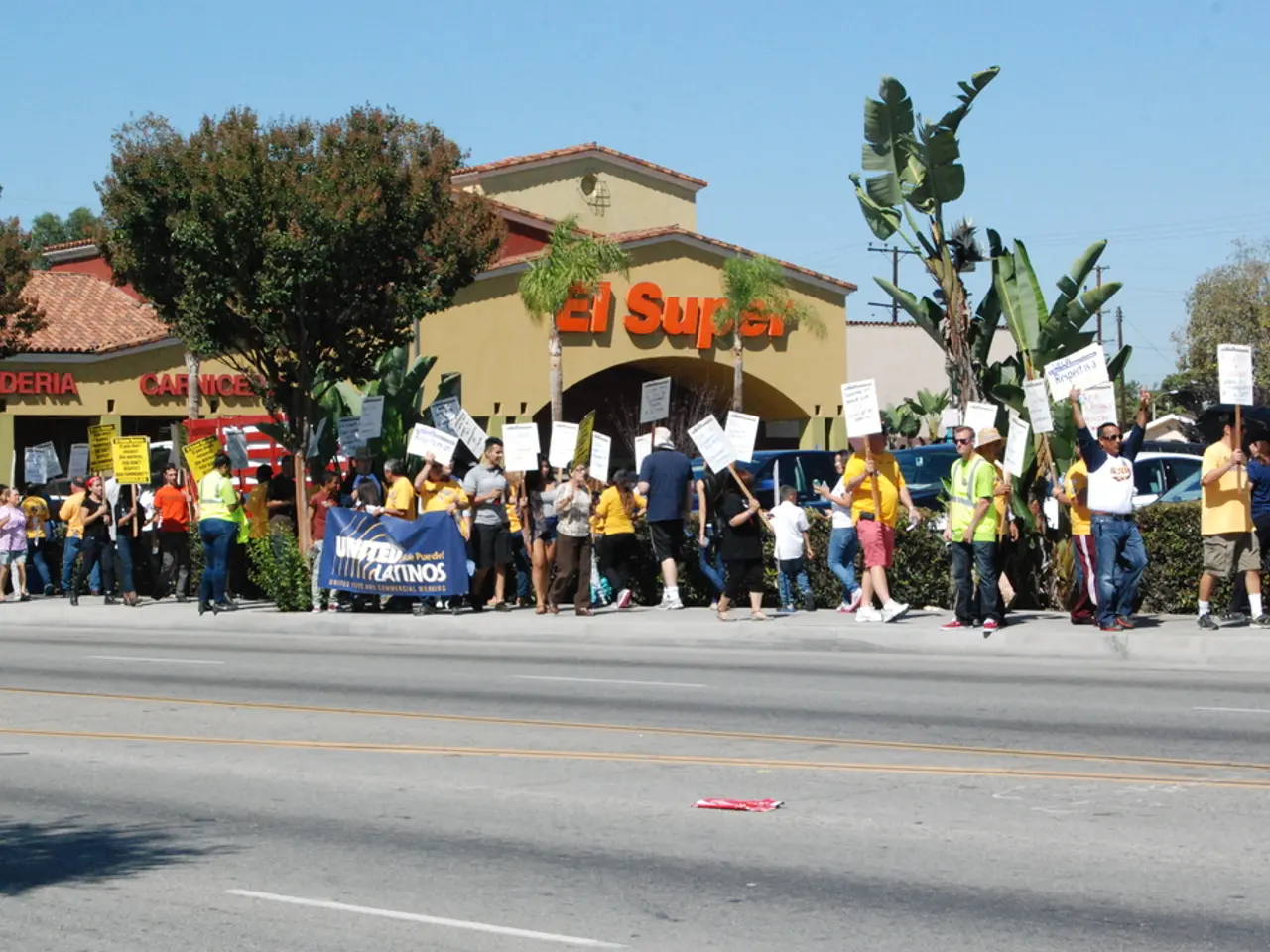Politicians Embrace Social Media: Understanding the Reasons Behind Their Choice
In the era of digital communication, politicians are leveraging social media platforms such as Facebook, Twitter, Instagram, and YouTube to connect directly with their constituents, answer questions, and respond to concerns. This shift towards the "Digital Campaign Trail" mirrors traditional physical campaigning, offering a cost-effective tool for political campaigns (1).
The impact of social media extends to political advertising spending, with campaign budgets increasingly shifting towards digital ads. Politicians use the power of "likes" and "votes" on these platforms to tailor their messages and content, aiming to elicit these reactions from their followers (2). Social media data supports targeted campaign ads by using data like age, location, and interests to refine ad targeting strategies (3).
Social media provides politicians with a unique opportunity to control their message more effectively. They can frame or deliver their message without any filter or bias, reaching millions of voters and potential supporters through online messaging and advertising campaigns (4). This direct interaction can make campaigns more immediate and cost-efficient (5).
Young voters, in particular, rely heavily on social media as a primary source of political information. It plays a significant role in influencing youth political engagement (6). The former President, Barack Obama, pioneered social engagement, fundraising, and organization via Facebook and Twitter since 2008 (7).
Social media platforms offer a visual medium like Instagram, which humanizes politicians and supports modern digital diplomacy. Politicians can use this platform to showcase their work, interact with constituents, and build relationships in a more direct and impactful way (8).
Grassroots mobilization is another key advantage of social media. It enables fast organization, awareness, and collective action on issues at the local level (9). Social media helps politicians mobilize supporters to vote, volunteer, and donate to their campaigns (10).
However, the use of social media in politics is not without its risks. Misinformation, reputation damage, backlash, and overreliance on volatile platforms are potential pitfalls that politicians must navigate (11). Former President Donald Trump's tweets generated significant media attention and sparked public conversations, ultimately helping him win the presidency. Yet, they also faced criticism for spreading misinformation and causing controversy (12).
In conclusion, social media offers politicians a powerful platform to connect with voters, raise awareness, and shape public discourse in a way that traditional media cannot. By bypassing traditional media channels, politicians can communicate directly with voters, stimulate political interest, democratize political opinion, and strategically allocate resources for maximum impact. However, the risks associated with social media usage in politics require careful management to ensure a balanced and informed public discourse.
- Politicians are enhancing their communication strategies with the rise of digital ads on social media, aiming to tap into the preferences and interests of potential voters based on their data analytics.
- As social media platforms like Facebook, Twitter, and Instagram foster direct interaction between politicians and their constituents, the broader realm of politics – encompassing entertainment, general news, and politics – is increasingly becoming subject to people's choices and opinions in the virtual sphere.
- In an effort to establish a strong reputation and net positive public sentiment, politicians are utilizing social media to tailor their messages and content, emulating the human touch that platforms like Instagram provide to portray a more approachable image.
- By leveraging the power of social media to mobilize their supporters through sharing information, volunteer opportunities, and fundraising campaigns, grassroots mobilization can be accelerated, ultimately playing a significant role in winning elections and creating a strong political following.




